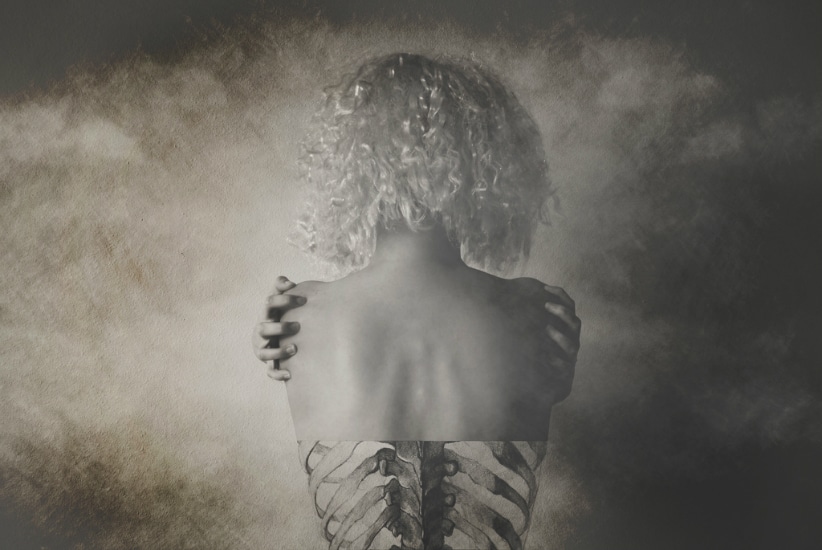
NEW YORK (WOMENSENEWS)—Every girl I know wants to be skinny, but even at 98 pounds no one wants to trade places with me. It’s not that I’m anorexic or super short, but I have Graves’ disease, an overactive thyroid issue that causes unexpected weight loss, mood swings, irregular menstruation, hair loss, irregular heartbeat, hyperactive behavior, hunger, fatigue, etc. The list is crazy long but long story short, it’s a pain to have.
 I was first diagnosed with hyperthyroidism in fourth grade, before I could seek refuge in social media’s female-friendly “accept yourself” ethos. If I could have found happiness in hashtags, I would have, but instead I had to see one of my best friends being called ‘fat’ for wearing a crop top and shorts when she was a little chubby. And another friend be called a “big tit bimbo” for having a C-cup in the 7th grade. Kids are terrible.
I was first diagnosed with hyperthyroidism in fourth grade, before I could seek refuge in social media’s female-friendly “accept yourself” ethos. If I could have found happiness in hashtags, I would have, but instead I had to see one of my best friends being called ‘fat’ for wearing a crop top and shorts when she was a little chubby. And another friend be called a “big tit bimbo” for having a C-cup in the 7th grade. Kids are terrible.
As I got older, people always told me it was a good thing to be skinny because it was more “desirable” than the alternative. I didn’t feel that way though. I looked like a skeleton; even my sister called me a “Holocaust Survivor.” I remember going to McDonald’s and Domino’s to try and put on weight but instead, I just lost more. It seemed that everything I ate turned into energy, which is why I struggled to pay attention in school.
While not being able to put on weight was the worst part of Graves’, it wasn’t the only thing I hated about it. I hated the way it got to my head. Once or twice a week, I would stare at myself in the mirror and just point out every flaw—my chicken legs, the arms that seemed like skeleton bones instead of flesh, my bony man shoulders, how frail and sick I looked, how pale I was, my huge eyes and even how I could see my ribs clearly when I sucked in air. I’d go online to research places that offered plastic surgery to fix the ‘ugly’ eyes and nose I had. I would try to find ways to gain weight by eating more than what was safe for me, which only provoked criticism from my mom and more pimples on my face.
My size made me unable to relate to my peers. My girlfriends talked about being fat or hating how they looked. I didn’t understand. Everyone else seemed a normal weight to me. I was the one who looked weird. And it’s not like my classmates ever let me forget it.
In middle school I deactivated my Facebook account after twin boys in my grade began harassing me online. There were also loads of stupid comments (like the one from a bunch of kids I’ve never met before calling me a “bitch”). Despite trying to avoid the comments, the one that caught my eye came from one of the twins. He called me “anorexic.” That’s what made me break down. I realized that was how people viewed me because of my weight. It wasn’t just me who harshly judged my weight; it could be seen by so many. They didn’t know that the reason for me being skinny wasn’t by choice, but because of my illness.
It took me four years to realize that these kids were just bullies. I was mad at myself for letting people think I was disgusting for having something I couldn’t control. I remember telling my friend about this a few years later and she asked, “Well, why didn’t you say anything?” I was silent for a moment and then it came to me: Why did my bullies deserve an explanation from me? My size shouldn’t bother anyone.
I will admit that it’s hard coming to terms with something like this, but as long as my doctors aren’t worried, I try to remember I’m as healthy as I can be. It’s hard living this way in a world that glorifies a girl’s thinness and shames diseases, but if I spend all my time worried about what other people say then I can’t live my life. And that’s a level of defeat I will not accept.


